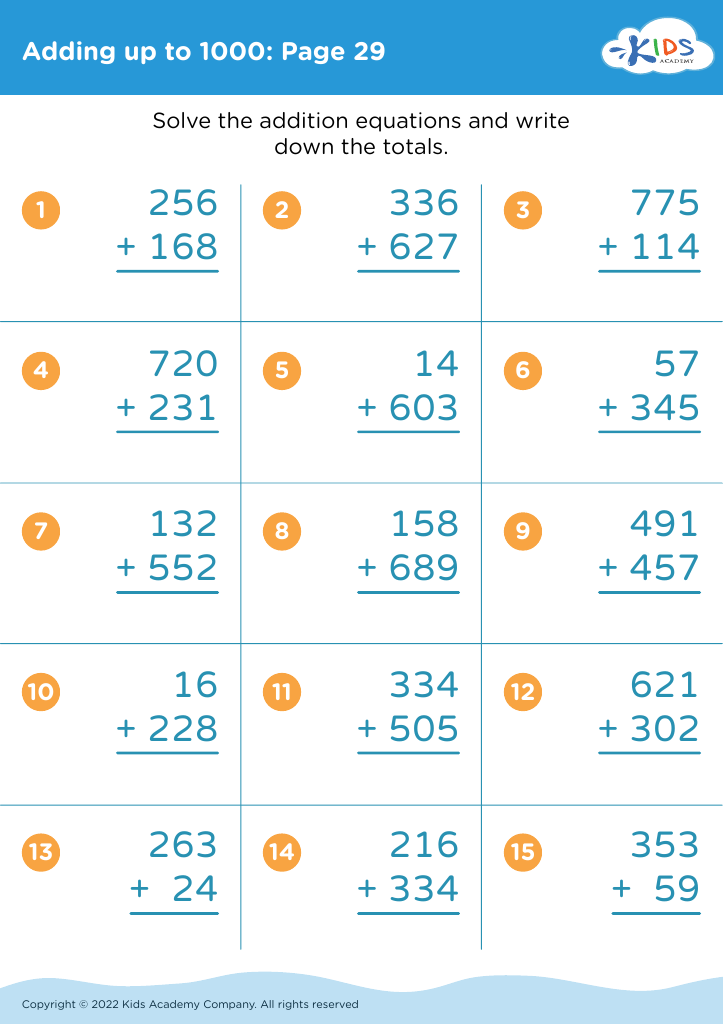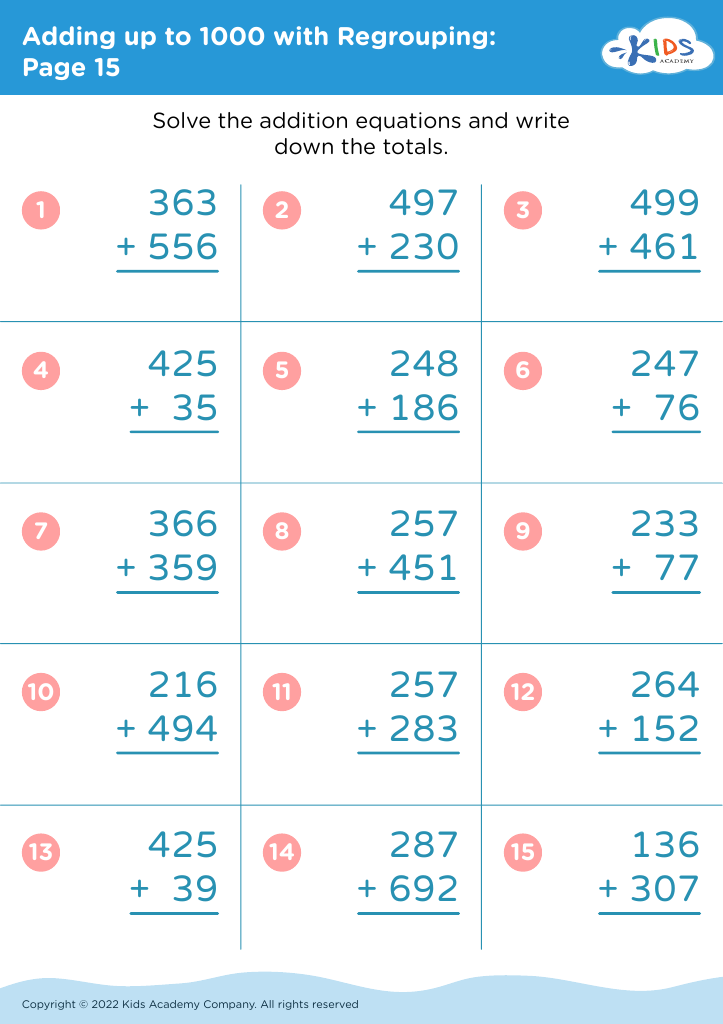Time conversion skills Addition Worksheets for Ages 7-8
3 filtered results
-
From - To
Enhance your child's math proficiency with our Time Conversion Skills Addition Worksheets for ages 7-8! These engaging and interactive worksheets are designed to help young learners master the concept of time, as well as strengthen their addition skills. Through fun exercises, kids will learn to convert time between hours and minutes while practicing addition in real-world contexts. Perfect for homeschooling or classroom use, our worksheets encourage independent learning and critical thinking. With colorful visuals and relatable scenarios, children will gain confidence in tackling time conversion problems. Download today and watch your child become a math whiz while enjoying the process!
Time conversion skills and addition are crucial for children aged 7-8, laying the groundwork for their daily life and future academic success. At this age, children are learning to understand time in a more meaningful way, transitioning from basic recognition of hours and minutes to performing calculations involving them. Mastery of time conversion promotes not only numeracy but also problem-solving and critical thinking skills.
Additionally, familiarity with time helps establish routines, enhancing children’s self-management and independence. When parents and teachers help children learn how to convert between units of time—such as minutes to hours, or 12-hour to 24-hour formats—they empower them to develop a better sense of timing, which is vital for following schedules and punctuality.
Moreover, solidifying these skills reinforces addition principles. Children learn to add and subtract time, connecting mathematical concepts to real-world applications like planning activities or understanding arrival times. This integration makes math more relatable and exciting, fostering a lifelong love for learning.
By nurturing time conversion and addition skills, parents and teachers not only support academic achievement but also prepare children for practical challenges they will face in everyday life. This holistic approach sets the stage for responsible, well-prepared individuals.



















